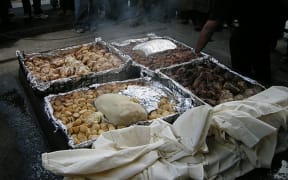A Taranaki business is finding the Australian market for its hāngi cookers is really heating up.
Te Kohatu Hangi Cookers expects to triple its turnover inside two years, as Māori across the ditch hanker after a taste of home.
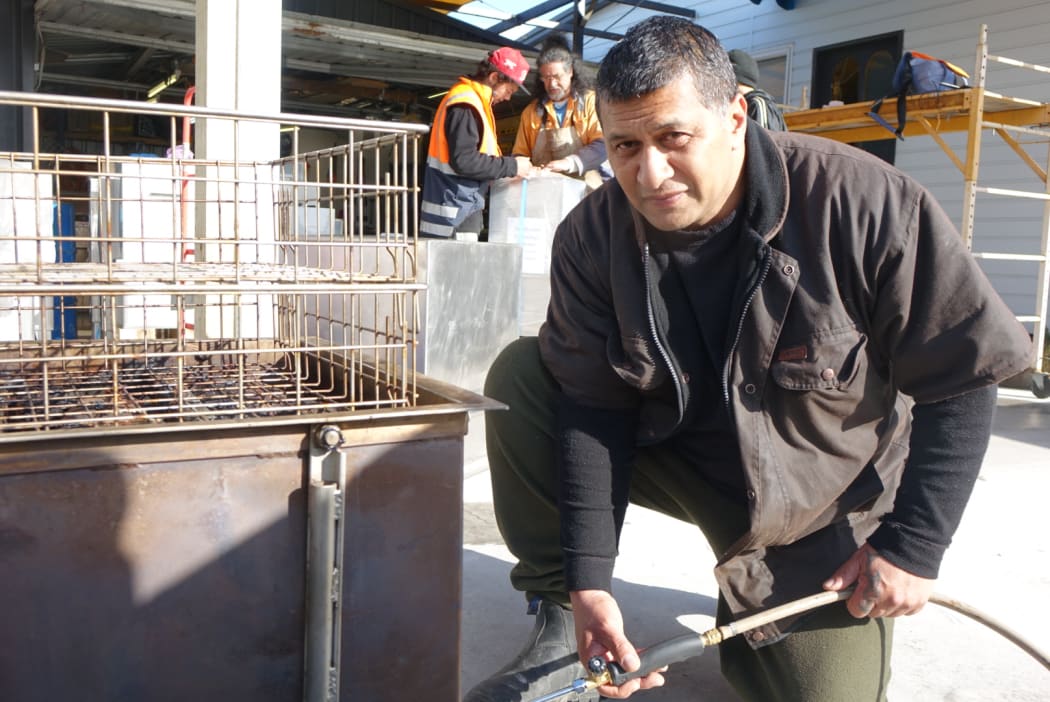
Owner of Te Kohatu Hangi Cookers John Tipene demonstrates how the river stones are heated. Photo: RNZ/Robin Martin
John Tipene, who runs the business from the garage at his Waitara home, said the design of his cooker was unique because it incorporated the use of river stones (kohatu), which generated a genuine hāngi flavour.
He said the stones were heated for about an hour before the kai was put in the stainless steel cooker in wire baskets and then cooked for between two and three hours.
"The fat in the juices from the kai inside - the meat and the food inside the baskets - drips down onto the rocks.
"The rocks turn that straight away into smoke, that smoke goes back up through the kai and that's the smokey flavour that you get. That's how it is achieved."
Mr Tipene said the steam created in the process did not actually cook the kai, but helped to keep it moist.
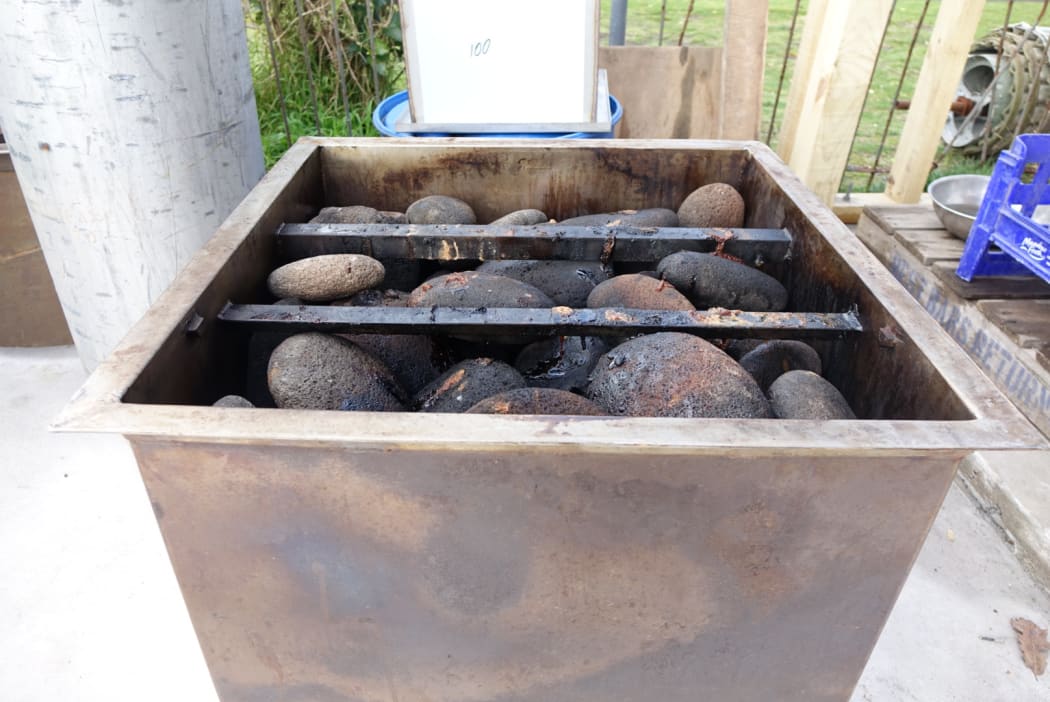
Te Kohatu Hangi Cookers use natural river stones. Photo: RNZ/Robin Martin
Te Kohatu Hāngi Cookers' gross turnover for the last quarter was about $200,000 but Mr Tipene expected that to triple inside two years
He said what had started as a DIY project now employed five staff, which was expected to grow further when the business moved into new premises in about 18 months.
In that time, Mr Tipene expected that production of the cookers, which cost between $950 and $3000 depending on their size, would increase from 50 units a month to 150, with 90 percent of them sold overseas.
The home-use cookers can feed about 30 people while catering models can feed up to 200.
Mr Tipene said the company was expanding to meet demand in Australia.
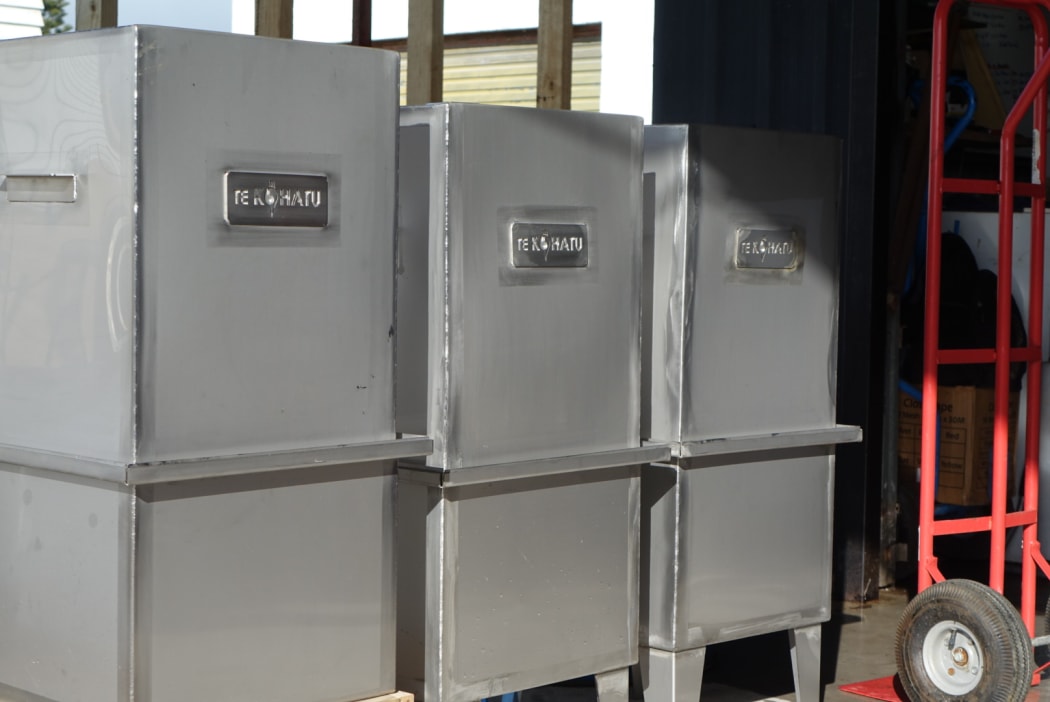
Home use Te Kohatu Hangi Cookers ready for delivery. They cost $950 and serve about 30 people. Photo: RNZ/Robin Martin
"We sell mostly to expats. Expat Māori, but a lot of Pākehā are buying them as well because it's so simple. It's such a simple process that they can do this. They can do it inside their shed, they can do it under the carport.
"You know, there's no restrictions around fire bans because the firebox is completely contained. You can do this in your jandals and shorts. It's that easy."
Mr Tipene said most sales came via the company's website or its Facebook page, but he also has an agent in Perth and Sydney, and wanted to add others in Queensland and Victoria as the business grows.
Venture Taranaki business advisor Jennifer Patterson is part of a team working with Te Kohatu.
Ms Patterson said one of the first things it did was help it investigate whether the design of the cooker was indeed unique - which it was.
"What that means is making sure his design isn't impinging on anyone else's design or patent out there in the marketplace, and that he's not going to suddenly get a letter from a solicitor telling him he can't sell his product because it is infringing on someone else's intellectual property."
Ms Patterson said it was difficult to say what the potential for the cooker was, but that the signs were encouraging.
"Certainly at this stage indications are that there is huge demand out there in the marketplace and the majority of the demand seems to be outside of New Zealand which is an interesting factor."
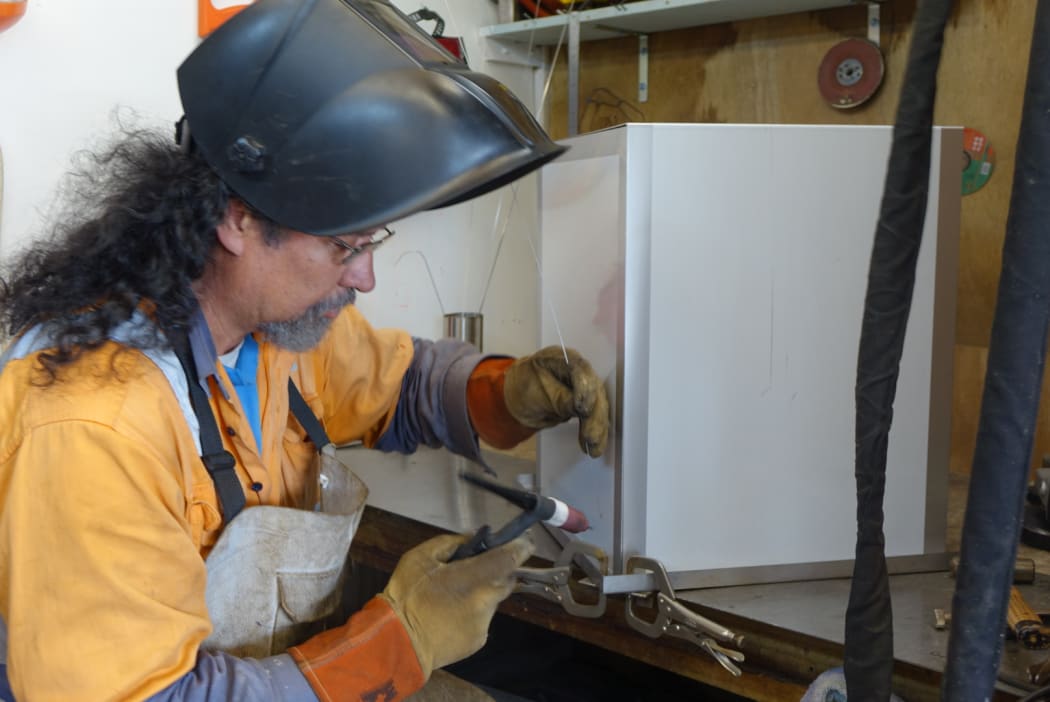
Foreman Guy McKinney says at first he was sceptical about the hangi cookers but was sold on them once he tried one. Photo: RNZ/Robin Martin
Back at the Waitara workshop, foreman Guy McKinney admitted he was a bit sceptical about the cooker at first, but was won over once he tried using one.
"The only difference between doing it like this and digging a hole ... is you're not digging the hole. You don't have to stack all the wood and all that, but because we're using real stones it gives that real earthy flavour."
Mr McKinney said for traditional hāngi cooking to be successful real expertise is required, but the cookers took the guesswork out of it.
